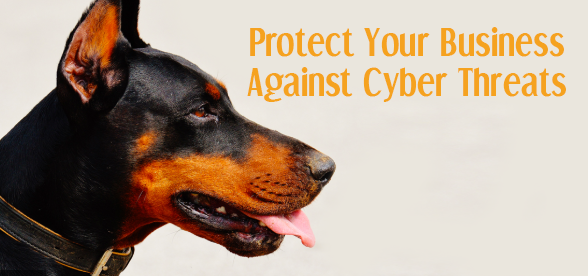Is Your Small Business In Danger Of Being Hacked?

By Debbie Gregory.
There is no way to completely secure any business against hackers. Even if you take every single precaution, you are still at risk from diligent criminals. Hackers seek out weaknesses and are very good at exploiting them. Thankfully there are a few things you can do to lower your chances of being hacked.
Focus Areas To Protect From Hacking:
1.) Professional IT support
If you do not have a professional IT (information technology) person or company working for you, get one. Criminals rarely discriminate between large and small companies and anyone can be exposed to a data hack. Paying a professional to evaluate your risks, install the right software, monitor activity, and keep everything up to date is a critical and essential business cost in our world today.
2.) Employee Training
Most security problems stem from employee-related errors. Things like clicking on bad websites, accidentally downloading or installing malicious software, opening up infected files, allowing fake IT companies remote access to their computer, etc. Invest in training a few times a year with a good IT security firm so that your employees are more aware of the potential problems they can face and how to avoid doing things that make your business more vulnerable.
3.) Employee Turnover
When employees leave a company, they tend to take data with them. This is usually not done maliciously. However, there are always some people who may take things on purpose to sell to a competitor or for other potentially vengeful reasons. It is a good idea to have procedures in place for data when an employee exits your company.
4.) Remote Employees
Employees that are moving around outside of your company with your data are at a higher risk of that data being lost or stolen. If an employee or contractor is remotely connecting to your database or server through online services, these also have a chance of being hacked. Again, work with a professional IT person to make sure you have strong data management and connection tools in place for these remote workers and make sure they are being actively monitored.
5.) Employees’ Personal Devices
Are your employees allowed to bring and use their own devices for work? If so, their devices can create an easy way in for a hacker. Much like remote employees, any person using their own device for work should be monitored and secured by your IT professional.
6.) Old Outdated Computers and Operating Systems
Running older, out of date versions of Microsoft Windows or Apple’s iOS will leave you incredibly vulnerable to hackers. Make sure that all computers in your company are using the most recent version of whatever OS you utilize. If the hardware is unable to run the latest OS, then upgrade the hardware.
7.) Security Software
All devices used in your company need good security software. Always make sure that the software is up to date and that it is configured to run routine scans. Most security software applications are relatively inexpensive, they run quietly in the background of the device and check for malware, viruses, infected websites, and any other vulnerabilities in the system.
8.) Strong Passwords
Most people are still pretty lax with their passwords. Can you believe the most common password today is still “1234?” Make sure that you require strong passwords (a combination of letters, numbers and symbols) for all devices and make sure that those passwords are changed every month or two.
9.) Secure Your Data
Make sure that all data you handle is encrypted, backed up regularly, and stored securely. If your company handles data such as health, financial or other personal information about your customers, and it is stolen, you can have a huge problem on your hands. Make sure that you have polices and procedures in place to safeguard confidential customer data; and make sure that you train your employees to handle the data securely.
Unfortunately, you can’t completely avoid being hacked… but making sure you are taking care of the nine items listed above will increase your chances of avoiding hackers by quite a lot.










